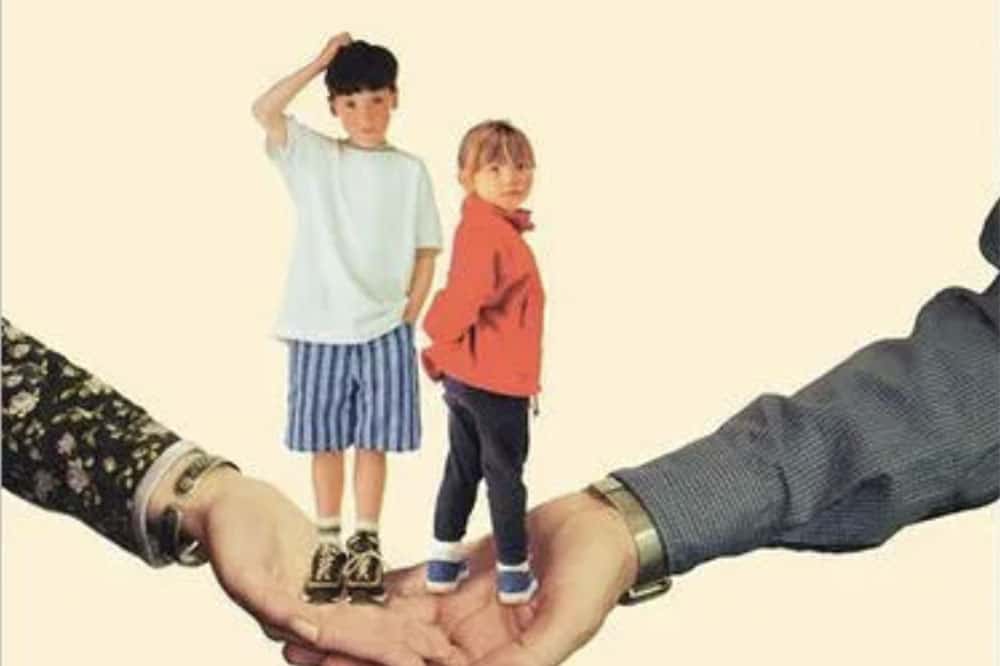
So many persons think divorce a panacea for every ill, who find out, when they try it, that the remedy is worse than the disease.
Dorothy Dix, Her Book (1927)
Self-help books come in myriad categories. Some offer advice on unique and previously untapped resources of spiritual and emotional courage; others remind us of what we already know. In times of stress, many of us lose our way because the moment’s impact short-circuits the brain synapses. We need to be reminded of how to behave and how to respond.
The information in Judith Wallerstein and Sandra Blakeslee’s What About the Kids? is far from revolutionary. It isn’t even new information. You’ll find nothing radical here. The beauty of What About the Kids? lies in its simplicity. It’s a common sense bible that parents need no matter what “stage” of divorce they are in. What About the Kids? is a reminder of how to behave and how to put yourself second to your children’s emotional and physical needs at a time when you, yourself, are screaming for help.
There’s arrogance to the method, though. Wallerstein tends to wax poetic about her ability to control the reactions of both children and adults during divorce – if they follow her advice. If only life were that simple and if human emotions could be predicted and controlled.
I can tell you exactly what to say to your children, and how to choose the right kind of custody for your children, how to help each child settle into his or her new schedule without tears. Most of all, I can show you the changes that lie ahead once the dust settles. The turning points are numerous, the danger points are unexpected, but so are the opportunities. I will be your guide.
Taken from another angle, if Wallerstein wasn’t so full of herself, would we listen to her? Confidence breeds success, and this woman has a truckload of it. Among her proudest moments are her appearances on Oprah, the Today show, and Good Morning America. This type of vitae tends to overshadow her true credentials because the worship of all successes pop culture-related often precedes true accomplishment.
A child psychologist, Wallerstein is senior lecturer emeritus at the School of Social Welfare at the University of California at Berkeley, where she’s taught for 26 years. She’s got more qualifications to advise than Dr. Phil. Co-author Sandra Blakeslee is an “award-winning science writer” and a regular contributor to the New York Times. She and Wallerstein have a simple premise: Dr. Spock and others publish child care books – this is a divorce care book. It’s not the first book on the topic, and it certainly won’t be the last. As with any crisis management situation, those involved should seek more than one source of counsel. What About the Kids? is a solid information base for parents learning how to cope with divorce.
The book is based on guiding the reader through intelligent reactions to the “three major, interlocking challenges” faced in divorce (with children). The first challenge, “get your life under control”, may be one of the most difficult to accomplish. If one cannot achieve some personal equilibrium, successful handling of the next two “challenges” is not possible. Second challenge? Prepare your children “for the breakup” and “support them through the crisis”. This is an especially gut-wrenching activity because it involves custody, and in this one, the children’s best interest has to supersede all other considerations. It’s a tough challenge, and the book offers legal advice and emotional coping skills.
The third challenge is no picnic because it involves building a new relationship with the ex-spouse. How to define yourselves and prepare for co-parenting roles can be difficult, to say the least. Being civil, let alone pleasant, to one’s ex while trying to create a new type of family, and pulling it off in front of a highly impressionable audience (your children) can cause stress. (Duh, but sometimes stating the obvious is necessary to learn how to deal with it.)
Wallerstein and Blakeslee have written other “pop management of a pop crisis” titles and have been highly successful. Their style is easy to read, their research and advice are comprehensive, and the goal of their books seems to be “You are not stupid, you can handle this. Let us help.” That’s not a bad premise for the multitudes that have no backup support group on hand. Pop psychology has its place. Did I really write that? Will my keyboard melt in shame at my typing those words? It’s true, though, as our society becomes fragmented, families are fractured. The common sense support of traditional family units has deteriorated. Outside sources need to be consulted, and searching for answers in a book is not a crime.
I suspect the oftentimes-negative reaction to the myriad pop psychology books published these days stems from the overwhelming amount published and available. You can soothe whatever wound with calming words from a self-professed guru. But some qualified professionals become best sellers. This doesn’t diminish their true accomplishment of offering usable, many times simple, solutions to complex problems.
When it comes to purchasing self-help books, Buyer Beware. There’s a lot of crap out there. Check the qualifications of the author before bringing it to the register. In the case of What About the Kids, despite her lofty academic achievements, Wallerstein makes the reader comfortable. She is like a grandma who sits you at the kitchen table, pours you a cup of tea, and sets a plate of homemade cookies next to it. As you say, “Nana, Bill and I are getting a divorce,” she takes your hand and says, “We’ll get through this. Bring the kids to me this weekend, and you spend some time figuring out what you need to do next. You’ll make the right decisions.”


![Call for Papers: All Things Reconsidered [MUSIC] May-August 2024](https://www.popmatters.com/wp-content/uploads/2024/04/all-things-reconsidered-call-music-may-2024-720x380.jpg)



